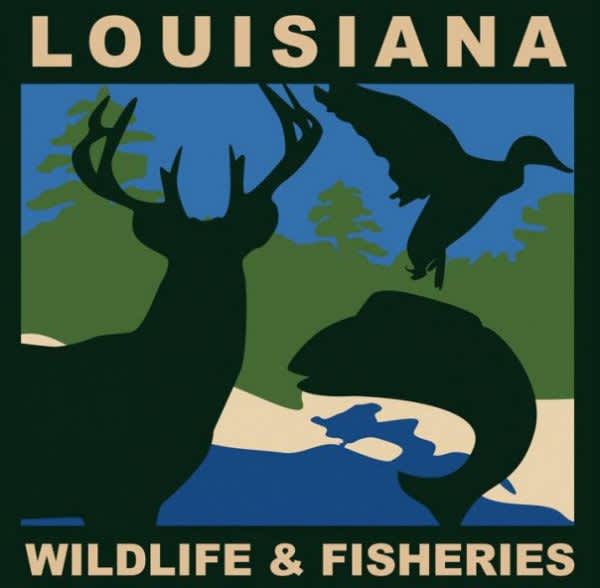Louisiana WF Commission Moves Forward With 2013 Crab Trap Removal Program

At last week’s Louisiana Wildlife and Fisheries Commission meeting a motion was approved to continue the abandoned crab trap removal program for 2013. Two winter crab trap closures and clean-ups are planned for portions of Plaquemines and St. Bernard parishes on designated dates in February and March next year.
Since 2004, the Louisiana Department of Wildlife and Fisheries, together with individual volunteers and organizations, has successfully removed and disposed of over 22,200 abandoned and derelict crabs. The removal of these crab traps is especially important to boating safety and crab harvesting efforts. Last year, volunteer organizations and individual volunteers including members of the Coastal Conservation Association and Nature Conservancy as well as volunteers from LSU, Nicholls State, LUMCON, National Relief Network, NOAA Fisheries Service, St. Bernard Parish Government and commercial crab and shrimp fishermen contributed to the removal of nearly 2,800 crab traps from coastal waters.
LDWF will again partner with Louisiana Sea Grant for the 2013 crab trap removal efforts. As the 2013 removal weekends approach, Louisiana Sea Grant will help organize volunteers, provide educational outreach on marine debris, as well as establish a recycling effort for crab traps.
Plaquemines Crab Trap Removal
The use of crab traps will be prohibited in the following areas beginning at 6 a.m., February 16 through 6 a.m., February 25, 2013:
- From a point originating along the eastern shore of the Mississippi River at 29 degrees 44 minutes 00 seconds north latitude; thence eastward along 29 degrees 44 minutes 00 seconds north latitude to 89 degrees 40 minutes 00 seconds west longitude; thence southward along 89 degrees 40 minutes 00 seconds west longitude to the eastern shore of the Mississippi River; thence northward along the eastern shore of the Mississippi River terminating at the point of beginning.
St.Bernard Crab Trap Removal
The use of crab traps will be prohibited in the following areas beginning at 6 a.m., March 9 through 6 a.m. March 18, 2013:
- From a point originating from the intersection of the northwestern shore of Bayou Yscloskey and the southern shore of the Mississippi River Gulf Outlet; thence northward to the southwestern shore of Shell Beach Cut; thence northward along the western shore of Shell Beach Cut to the southern shore of Lake Borgne; thence northward a distance of one-half mile from the southern shore of Lake Borgne; thence eastward and northward along a line extending one-half mile offshore along the southern and western shore of Lake Borgne to 29 degrees 58 minutes 00 seconds north latitude;thence eastward along 29 degrees 58 minutes 00 seconds north latitude to 89 degrees 22 minutes 00 seconds west longitude; thence southward along 89 degrees 22 minutes 00 seconds west longitude to the southern shoreline of the Mississippi River Gulf Outlet; thence westward along the southern shoreline of the Mississippi River Gulf Outlet to the eastern shore of Bayou La Loutre; thence southward along the eastern shore of Bayou La Loutre; thence westward along the southern shore of Bayou La Loutre to the western shore of Bayou Yscloskey; thence northward along the western shore of Bayou Yscloskey and terminating at the point of beginning.
All crab traps remaining in the closed area during the specified period will be considered abandoned.
In the weeks leading up to the closure periods, LDWF will send notices to all licensed recreational and commercial crab trap license holders and crab buyers within these and adjacent parishes.
These proposed trap removal regulations do not provide authorization for access to private property. Authorization to access private property can only be provided by individual landowners.
Crab traps may be removed only between one-half hour before sunrise to one-half hour after sunset. Anyone may remove these abandoned crab traps from within the closed area. Abandoned traps must be brought to LDWF designated disposal sites and may not be taken from the closed area.
Since its establishment in 1968, Louisiana Sea Grant has worked to promote stewardship of the state’s coastal resources through a combination of research, education and outreach programs critical to the cultural, economic and environmental health of Louisiana’s coastal zone. Louisiana Sea Grant, based at Louisiana State University, is part of the National Sea Grant Program, a network of 30 programs in each of the U.S. coastal and Great Lakes states and Puerto Rico/U.S. Virgin Islands.
The Department of Wildlife and Fisheries is charged with managing and protecting Louisiana’s abundant natural resources. For more information, visit us atwww.wlf.louisiana.gov, on Facebook at www.facebook.com/ldwffb, or follow us on Twitter @LDWF.
Written comments may be submitted to Martin Bourgeois, Marine Fisheries Biologist, Marine Fisheries Section, P.O. Box 189, Bourg, LA 70343, prior to November 1, 2013.
For press inquiries please contact Laura Wooderson at (504)430-2623 or lwooderson@wlf.la.gov.

